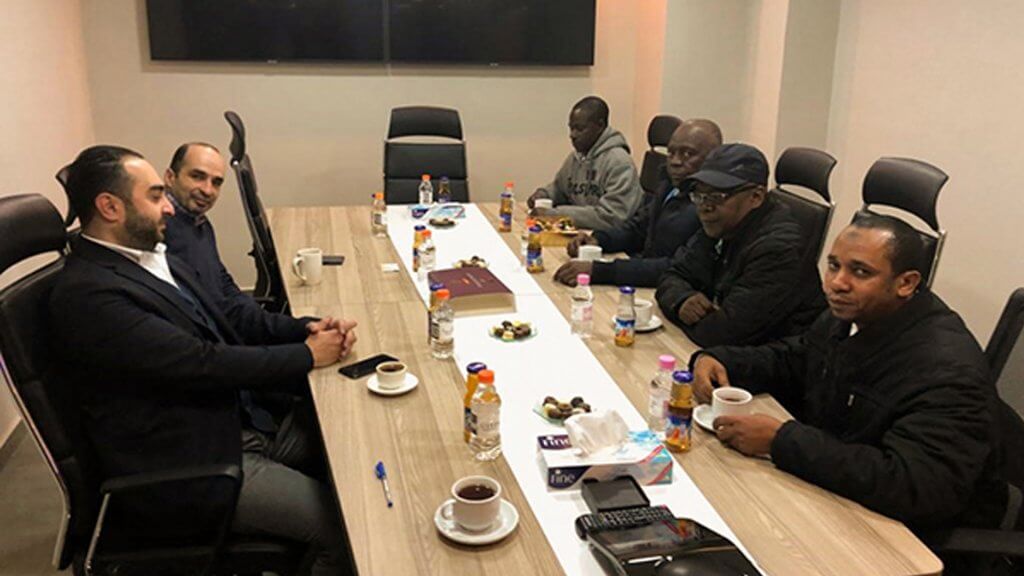
By James Clifton, Group Chief Executive at The MISSION
A short while ago I wrote about the upsides and downsides of the enforced shift to an online presence for retail brands caused by the original COVID lockdown. Little did we suspect we’d be doing it all again.
To paraphrase my earlier self (and it took me 1,200 words last time so you’re getting a good deal here): shifting to being an online provider opens up a vast new marketplace for brands (big upside) but means you are going toe to toe with the very best in the world (big downside) in a truly global marketplace.
So, the outtake was to make sure that your proposition and delivery were genuinely world-class. No more hiding behind “local” as an excuse for “not really very good”, or “charming” really meaning “um, we lost your order but Maureen is back next week and she’ll get to it then”. In short, we were all moving up to “big school” and the game would get a lot more real – i.e. very terrifying – very quickly.
It got me thinking about our own business and it struck me that two very important factors had manifest themselves this year.
First, a fundamental recognition that talent is independent of geography. Yes, there are clear nodes where clusters of talent congregate: London, Chicago, San Francisco, Singapore, Shanghai, Seattle, Munich. That’s why we have MISSION offices in each of those locations.
But we also know that award-winning, game-changing, jaw-dropping talent can live and thrive in all sorts of places. That can be for all sorts of reasons: family commitments, personal preferences, stage of life, health – the list is as varied as humanity. But, whereas in previous times, being out of the physical loop meant being out of the game, now, thanks to the liberation of digital technology, the 5G loop runs right through your village, town, hamlet, yurt or island. In fact, sometimes it feels like it’s impossible to escape the damn loop.
The upside is we can have super-bright people developing paradigm-shifting campaigns and technology, working out of camper vans in the back of beyond if that’s where they feel most creative and happy.
It means that the teen prodigy who doesn’t want to leave her home town, but can code faster than Neo in The Matrix, doesn’t need to end up working in the local store. She can develop her award-winning app in her cottage by the river, while conversing in real time with colleagues in Tokyo, Paris and Miami. Yet still walk her dog through open fields of an evening whilst earning the true going rate for her prodigious talent.
This means that we, collectively, have access to lots more talent. All we have to do is identify it, then connect it in ways that allow it to flourish fully.
Which brings me to the second key factor that’s emerged from these past few months.
You’ve heard the phrase “When life gives you lemons, make lemonade”? Well, we can probably all agree 2020 has been a bumper harvest of citrus fruit. Despite this, the lemonade we’ve made may yet prove to be pretty potent. Because, out of the COVID chaos, we’re being forced to finally take remote working seriously, with proper systems and processes that are not just sideline projects to make HR feel warm and cozy but real, core business processes engineered to deliver full scale results.
For years we all spoke earnestly about achieving a better work/life balance, usually in the pub after a few drinks, but we were all locked into the mutually assured destruction of ever lengthening work weeks.
Universal lockdowns change that of course. They necessitate that everyone who can, has to work from home. Consequently, we have had to develop systems and processes that support that working model. Failure isn’t an option because too much is at stake both in the short term and also, it seems increasingly clear, the longer term if we want our companies to thrive.
A survey of global workers by Microsoft earlier this year found 71% of people expressing a desire to continue working from home, at least part time, once the pandemic is over. Larry Fink, CEO of Blackrock, said recently that he didn’t believe his firm would ever return to full time office work but instead see a mix of flexible, rotating working arrangements. And Facebook expects half of its employees will work remotely in five to ten years’ time.
Based on this paradigm shift, we took the decision to reduce our London footprint from four offices to two, allowing a more flexible mix of office and home working supported by enhanced ways of working. Many other companies are taking similar steps.
These two factors – geographically-agnostic talent and superior remote-working practices – open up a whole new world of opportunity.
At MISSION, we’ve always made it our business (literally) to recognise and embrace talent wherever it is: to judge the work, not the postcode. We were doing this long before the pandemic, which is why we have extremely bright people in some exotic places (Harefield, Norwich, Dorset, Devon…) as well as the usual suspects mentioned above.
But, like many businesses, the pandemic accelerated our investment in systems and processes to allow us to work cohesively together, at speed, to deliver results for clients. And now those systems – and the confidence they’ve helped foster – have allowed us to go a step further. We can now offer clients a 24/7 centralised creative production, product and innovation facility run virtually, weaving together the best talent for each task, from wherever that may be around the world, on-shore, off-shore, anywhere. For some clients, it will mean work can progress seamlessly with zero downtime, effectively following the working day round the planet, tracked by our universal project management systems and managers.
From a business point of view, the effectiveness and efficiency this brings is very exciting but, personally, I love the way it lets people thrive, on juicy projects they may not have been exposed to simply because of their geography. And it produces innovative solutions that we may never have realised with the previous ways of working. That can only be to everyone’s benefit.
Which brings me to the other 2020 bogeyman: Brexit. So much time and angst has been spent on the B word since May 2016, much of it around the issue of fluidity of labour across borders. But what this year has shown is that technology and talent refuse to recognise borders: try building a wall in the cloud. So maybe Brexit is actually a bit of a red herring, which would be ironic after all the turmoil?
This is not about offshoring jobs from the UK: that was tried in the noughties and didn’t work. The new approach is more about attracting work into the UK, because the highest value projects will naturally flow towards the best talent, something we have in abundance and now accessible in effective ways. It’s the global marketplace in action, in real time.
If we can fully grasp the opportunities presented by these fundamental work changes, then maybe the future will prove brighter than at first thought. We find ourselves at the confluence of technology, talent and a unique point in time where new possibilities are emerging from the detritus of this awful year.
And wouldn’t it be good for something genuinely positive to come out of the chaos, so that 2020 wasn’t seen solely as a lost year but as the kickstart of a new decade of opportunity?




















